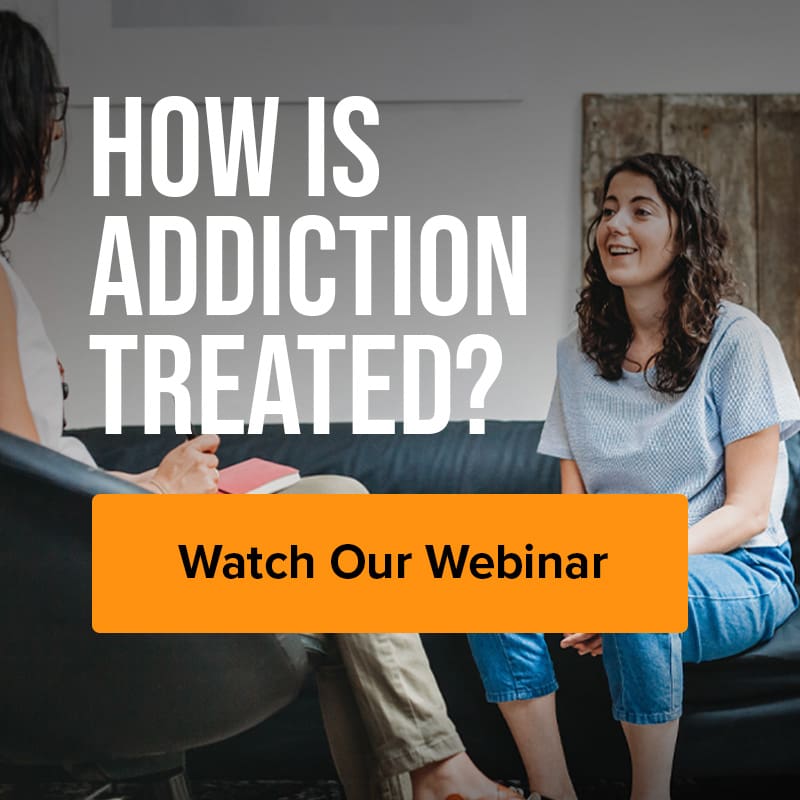Opinion by EHN Staff
Written by Hillary Webster, an employee at EHN Bellwood Toronto.
This week is National Addiction Awareness Week. According to the Canadian Centre for Substance Use and Addiction, this year’s theme is “The Stigma Ends With Me.” As a society, we’ve been trying to address stigma in addiction and mental health for a while now, and I’ve been reflecting on how successful we have been. While we still have a long way to go, I feel encouraged by the conversations people have continued. However, we need to press forward. We need mental health and addiction to be addressed on an individual basis and at a policy level. We need to have productive conversations in our households with our families and in governments with our local and national representatives. We need to be loud.
Mental Healthcare is Crucial to Overall Healthcare
In my previous career as a healthcare provider, I witnessed every day the struggles people endured and the physical consequences of those stresses. People were burned out, exhausted, suffered from chronic pain and diabetes I advocated very strongly for most, if not all, of my patients to seek counselling of some sort. I’m hard-pressed to find a person who doesn’t have some sort of stress: family, finances, work pressures are typical refrains I hear repeatedly.
I ask these patients the same question: “Do you have a therapist?”
Often, people don’t. I highly recommend it to most people. I advocate for it. We all go through stress, periods of anger and conflict, grief, and a whole range of emotions that are challenging to process at the best of times. Often, we need the skill and experience of an expert to help us navigate healing from these traumatic experiences, but we need to normalize this help-seeking rather than viewing it as a problem, flaw, or weakness.
Public Healthcare Makes Mental Health Low Priority
After all, you go to the doctor for your annual physical checkup, or if you have an acute or chronic problem that needs monitoring or treatment. Why can’t we do the same for mental health conditions? Why does going to a family doctor, psychologist, therapist, or psychiatrist feel so much more difficult when the chief complaint is mental or emotional?
Perhaps one argument is that our public healthcare system, wonderful though it is, is woefully under-equipped to deal with mental health and addiction. We at EHN Canada know this—we deal with the consequences of public health shortcomings every day.
Everyone Should Have a Mental Health Professional
But apart from this systemic issue, we need to actively encourage people to ask for help. This is where the stigma ends: when everybody has a therapist and can talk about it. Although it seems optimistic at this time, we need to be done with the “stiff upper lip” mindset that served as a coping strategy for previous generations. Stifling emotions and not tending to mental health has rarely served anyone.
Other people say their friends and their family members act as their therapists. While it is wonderful that these people have a higher comfort level that they can discuss their issues with their loved ones, your friends aren’t enough. They’re biased. They don’t have the background, education, skills, and they might be going through their own emotional turmoil and are ill-equipped to handle yours. However, I feel encouraged when I hear university-age people speak to each other about going to see their therapist—a phenomenon I’ve heart anecdotally. Young people are leading the way to end mental health stigma.
Preventing Addiction by Talking Mental Health
If we can address mental health more proactively, we can stop some people from turning to substances to deal with their feelings. Studies show that early trauma and stress changes brain chemical pathways to increase a person’s risk of developing an addiction. With prompt mental health treatment, we hope to reduce that risk. Although there are many factors at play that are still poorly understood in the development of addiction, we hope that by creating a safe environment to talk about mental health and addiction without the fear of judgment, we can help people get the help they need, sooner.
The Call for Stigma-Free Language
That’s why in our blogs, facebook posts, and all of our other communication, EHN Canada leads by example. We adhere to strict guidelines when posting about addiction and mental health, using person-first language that frames addiction like any other illness, and not like some sort of character flaw in an individual. We don’t talk about addicts, or users, but people with addiction. We need to talk about addiction the same way we talk about diabetes, heart disease, and cancer—as a disease that has many different contributing factors: genetics, environmental, social, economic, among others.
That’s why we’re all for ending the stigma. EHN Canada is working hard with the government to help put policy framework in place to end stigma in addiction and mental healthcare, but you can do your part, too. Doctors should be talking to their patients about their mental health instead of waiting for them to broach the topic. You can incorporate mental health into conversations with family and friends. If it doesn’t start with us—you, me, the government, and other stakeholders—it doesn’t start at all.
I realize normalizing mental health and addiction care is a large ask. In the meantime, here are some actions that you can take to combat the mental health and addiction stigma and so some self-care in the process:
- Check out your EAP – if you have private health insurance at work, chances are you have an Employee and Family Assistance Program. These programs help support people on topics from grief support and marriage counselling, to physical health and fitness. All of your information is confidential and separate from human resources. Don’t be afraid to use this resource—it does not affect your employment.
- Find a counsellor – by the time you need to see a psychotherapist, there might be a lag time while you find the right one. If you have any reason to see a therapist, start searching now to have someone on your team at the ready when you need help. Counsellors can have many designations: social worker, psychologist, psychotherapist, psychiatrist, but ensure your counsellor is registered with their regulatory college in good standing.
- Change your message – check out this language primer from the Canadian Centre for Substance Use and Addiction. The examples in the document help us re-visit the way we talk about addiction. If we can change the conversation to reduce stigma, more people can get help.
- Take a mental health day – you deserve it. You have health and wellness days for a reason. If you don’t take time to rest, the stress can pile up and lead to burnout. Taking a day every once in a while to gather yourself, especially during a stressful and taxing time, can help prevent bigger mental health conditions down the road.
- Talk to your family – if you have children, it’s important to role model healthy expression of emotions. Instead of saying “don’t be sad” to a child, it may help to empathize with them (for example, “I can see you might be sad or angry. What’s going on for you right now?”) Acknowledging and talking about emotions is a wonderful way to begin to erode the stigma around addiction and mental health.
Until we have a medical system that prompts you to come in for a mental health check-up, the onus is on us as individuals to check in with ourselves, our professionals, and our loved ones on mental health matters. If we can end the stigma surrounding mental health and addiction, more people can get help. For National Addiction Awareness Week, we ask you to examine your thoughts, sayings and behaviours towards people with mental health and substance use disorders. What you say matters. If you or someone you know is experiencing a substance use disorder, stigma can make it difficult to get help. Let’s make mental health stigma a thing of the past.
We Can Help You
If you would like to learn more about our treatment programs, or if you have any questions about addiction or mental health, please call us at one of our numbers. Our phone lines are open 24/7—so you can call us anytime.

